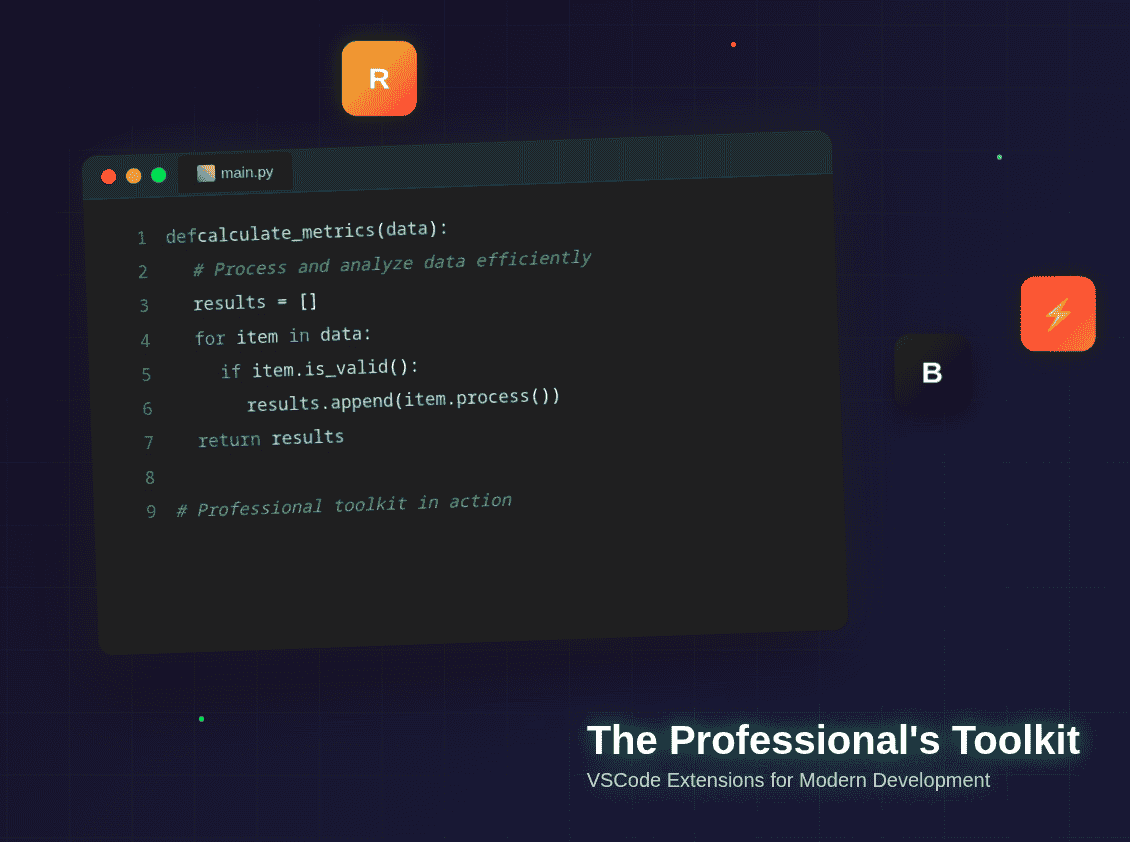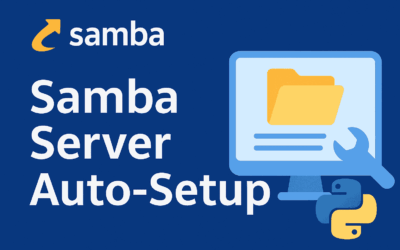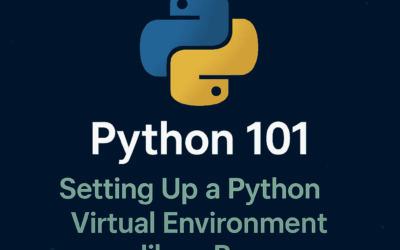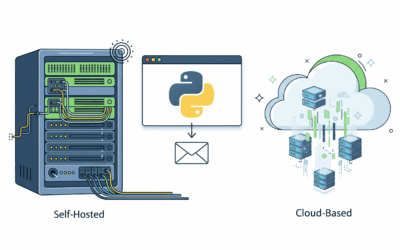Introduction
In the fast-paced world of IT, a developer’s environment is their most important tool. A well-configured editor can be the difference between a productive day and a frustrating one. Visual Studio Code has become the go-to for many developers due to its incredible flexibility and vast ecosystem of extensions.
This guide is a curated list of essential VSCode extensions for Python developers who are serious about optimizing their workflow, writing clean, maintainable code, and collaborating effectively with their team.
The Core Foundation – The “Must-Haves”
These are the extensions that every Python developer should install on day one. They form the base of a professional, productive environment.
- Python (by Microsoft): This is the official and most fundamental extension. It provides the core functionality you need, including IntelliSense for code completion, a powerful debugger, and seamless management of different Python environments and interpreters. Think of it as the engine that powers your Python experience in VSCode.
- Pylance: Built by Microsoft, Pylance is a language server that supercharges the official Python extension. It’s not an alternative but a vital enhancement. Pylance delivers lightning-fast code completion, rich type-checking, and intelligent code navigation, which are indispensable for working with large codebases and complex libraries. It helps you catch errors before you even run your code.
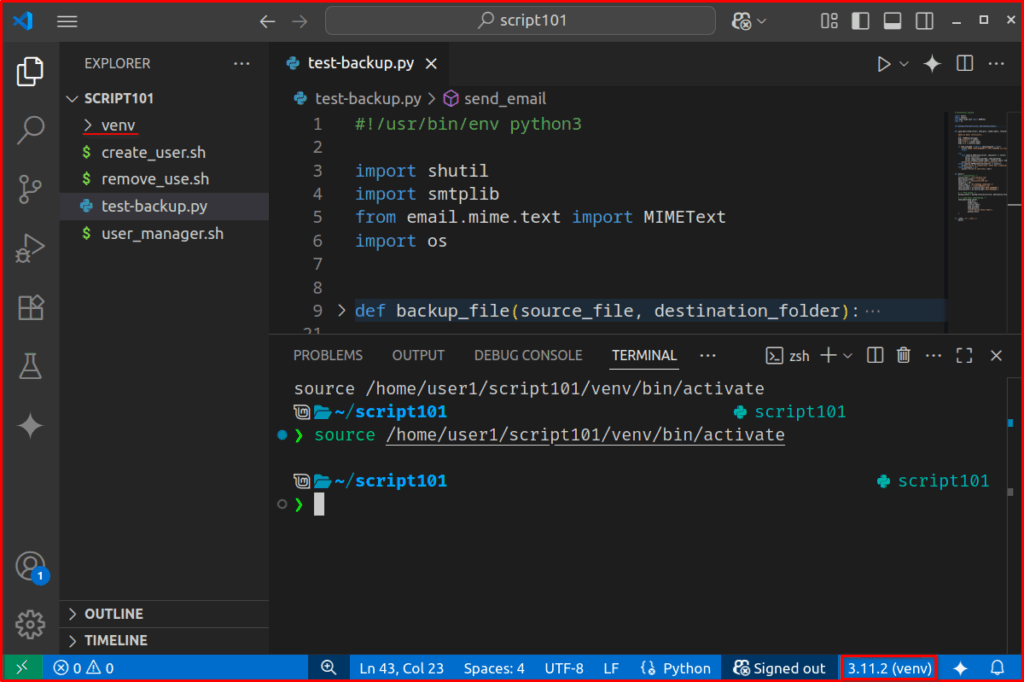
As mentioned in my previous Python environment setup blog, Microsoft’s Python extension provides seamless environment management. The screenshot shows the Python interpreter using virtual environment
Code Quality & Consistency
For professionals, writing consistent, error-free code isn’t just a good practice—it’s a requirement. This section covers the tools that automatically enforce best practices and save you from endless style debates during code reviews.
- PEP 8: The foundational Python style guide. All professional formatters and linters aim to enforce these conventions, which dictate everything from variable naming to line length. Understanding PEP 8 is the first step toward writing readable and maintainable Python.
- Black Formatter: Known as “the uncompromising code formatter,” Black removes all style choices from your hands. It automatically formats your code to a strict, uniform standard. The result is a consistent codebase where the entire team’s code looks identical, eliminating time-consuming debates and producing clean, readable Git diffs.
- autopep8: As an alternative, autopep8 is a great choice, especially for new learners or teams that prefer more control. Unlike Black, it is a more flexible formatter that only fixes code that explicitly violates the PEP 8 standard. This allows for more configuration and preserves some of the original style, giving developers a middle ground between manual formatting and a completely opinionated tool.
- Ruff: This is a modern, extremely fast linter and formatter written in Rust. It’s often used as a direct replacement for older tools like
Flake8andPylint. Ruff checks for thousands of common code style and logic errors in milliseconds, providing an immediate feedback loop that keeps your code clean and bug-free. - autoDocstring – Python Docstring Generator: Good documentation is a hallmark of professional software. This tool automates the process of generating docstrings for your functions and classes, saving you time and ensuring you maintain a consistent documentation style across your projects (including popular formats like Google and NumPy).
Debugging & Testing Workflows
Reliability is key. These extensions are crucial for maintaining code stability and speeding up the debugging process.
- Python Debugger: This tool (which comes with the core Python extension) is a non-negotiable for finding bugs. It allows you to set breakpoints, step through your code line by line, inspect variable values, and trace the flow of your program.
- Python Test Explorer: Professional developers need a streamlined way to run and manage unit tests. This extension provides a dedicated user interface for test discovery and execution for popular frameworks like
pytestandunittest. You can run, debug, and view the results of your tests with a few clicks, making test-driven development a breeze.
Collaboration & Productivity
In a professional setting, development is a team sport. These extensions are indispensable for improving communication and workflow with your colleagues.
- GitLens: This is a “supercharged” Git extension that makes it easy to understand the history of your codebase. Its most valuable features include inline
git blameannotations that show who changed a line of code and when, a powerful commit history visualization, and quick code navigation. - Live Share: A game-changer for remote work and pair programming. Live Share allows you to open a collaborative session where a team member can view and edit your code in real-time, share terminals, and debug together. It’s the closest thing to sitting side-by-side with a colleague.
- Better Comments: A simple but highly effective quality-of-life extension that visually highlights comments in your code. By using color-coded tags like
TODO,FIXME, andALERT, you can improve communication with your team and keep track of important tasks directly in your code.
The “Power User” Add-ons
For more advanced workflows and specialized tasks, these extensions can further expand your capabilities within VSCode.
- Jupyter: If you are a data scientist or work with notebooks, this extension is essential. It brings the full Jupyter notebook experience—including interactive cells, plots, and a kernel selector—directly into your VSCode editor.
- Docker: For developers working with containerized applications, the Docker extension provides a convenient interface for managing images, containers, and volumes directly from your IDE. It’s an essential tool for maintaining consistent development environments.
- Path IntelliSense: A simple but effective extension that provides auto-completion for file paths. This may seem minor, but it saves a surprising amount of time and prevents typos when importing modules or referencing files.
Final Thoughts
This list represents a powerful starting point for any professional Python developer using VSCode. The true power lies in customizing these tools to fit your specific workflow and your team’s needs.
By building a strong foundation with these extensions, you can spend less time on configuration and more time on what truly matters: writing great code.

